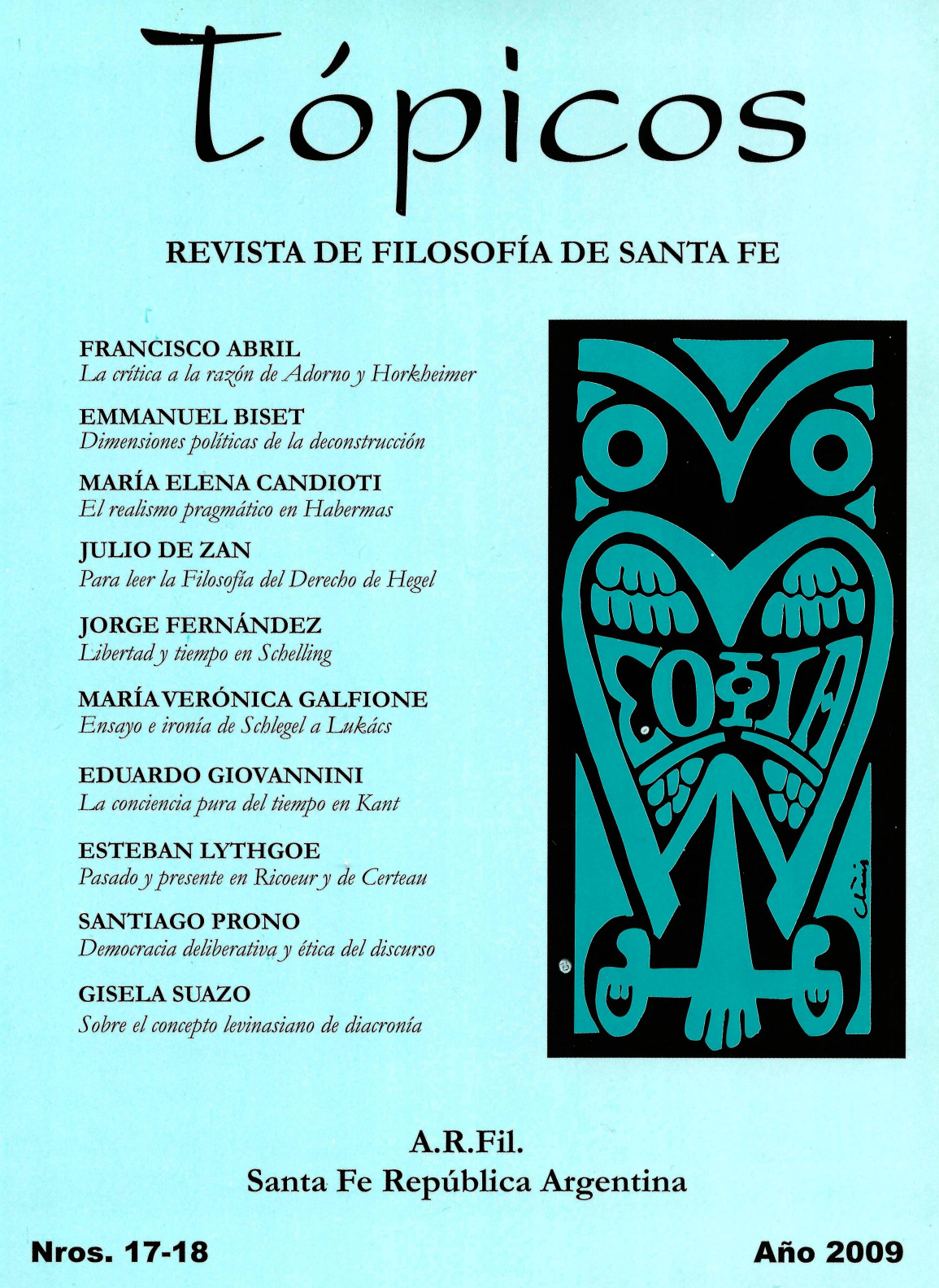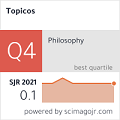Sistema de la libertad y sistema del tiempo en la obra de Friedrich Schelling
DOI:
https://doi.org/10.14409/topicos.v0i17.7505Keywords:
post-Kantian idealism, philosophy of spirit, Schelling, system of freedom, system of timeAbstract
The questions inherent to the relationship between time and freedom reach their maturity in the works of Hegel and Schelling. In this article, we will attend particularly to the latter since the way opened by his “Investigations on the essence of human freedom” (1809) derives quite clearly into the successive attempts of exposition of a system of time in the “Ages of the World” (1811, 1813, 1815) and in the Lessons of München (1827-28). Following Schelling’s development, then, we will try to understand why in the post-Kantian idealism the search for a philosophy of the spirit as a system of freedom leads to treat “time” not only as an a priori intuition of sensibility but as an inherent determination of the absolute, and in that sense, why in Schelling’s thought system of freedom and system of time are equivalent to the exposition of the absolute.














